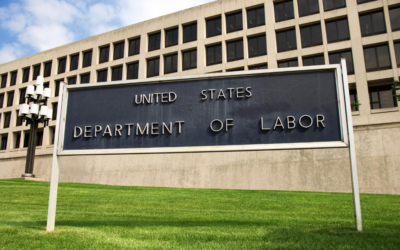

What state legislatures don’t understand about health savings accounts – Oklahoma is the latest to pass legislation inadvertently barring HSA contributions
When I was a boy, my dad used to tell me, “If you don’t know what you’re doing, just ask. Better to ask, son, than to have to come back later to fix something you messed up.” It’s a mantra that state legislators should take to heart. Oklahoma is the latest state to...

The OSHA ETS as we know it is over
On Jan. 25, 2022, OSHA withdrew the Nov. 5, 2021, Emergency Temporary Standard (ETS) which was in a state of flux from the time it was published until the U.S. Supreme Court reinstated the nationwide stay earlier this month. While employers were left wondering what...
How do you apply FMLA+ given new school year policies?
Updated Aug. 28, 2020 with additional DOL guidance released after original publication With the new school year upon us, parents are faced with new child care concerns due to the continued risk of COVID-19 transmission and varying approaches to that risk by different...
New FFCRA paid leave guidance for government contractors
Government contractors performing work on contracts governed by the Service Contract Act (SCA) or Davis-Bacon and Related Acts (DBRA) received some welcome news this week when the U.S. Department of Labor’s Wage and Hour Division (DOL-WHD) issued guidance exempting...
Proposed rules would allow some additional flexibility to ACA grandfathered plans
Federal regulators have proposed regulations to make it easier, for the dwindling number of employers still boasting grandfathered health plans, to retain grandfathered status.
Feeling good about your ACA reporting compliance? A federal audit might foreshadow a more intolerant IRS
The IRS has alarmed many employers over the last few years by sending 226-J letters assessing potential penalties for alleged violations of the employer mandate under the Affordable Care Act (ACA). While in most cases the employers have been able to dodge those penalties by convincing the IRS that the employer had satisfied the mandate but had merely misreported that fact to the IRS, a Treasury Department audit reports wants the IRS to become less forgiving of those errors in the future.
Supreme Court says broad exemption from contraceptives mandate can survive … for now
The Supreme Court has handed the Trump administration a major, but perhaps temporary, victory in the long-simmering fight over whether employer-sponsored group health plans can be required by the Affordable Care Act to provide no-cost contraceptives to their female members.
EEOC bars mandatory antibody testing, and feds clarify that return-to-work testing is beyond the scope of the coronavirus health plan testing mandate
The EEOC, while allowing mandatory fever screening of employees, and even swab tests designed to reveal the active presence of the virus, has put the kibosh on mandatory coronavirus antibody testing, due to reliability concerns.
IRS proposes rules allowing HRA reimbursement of direct primary care and healthcare sharing ministry fees
The IRS has proposed regulations that would treat direct primary care arrangement (DPCA) fees as medical care or medical insurance, opening the door to their reimbursement from health reimbursement arrangements. While the proposal is unsurprising in many respects, the definitive guidance is welcome.
Employer plans and electronic communications: Good news, sort of, for employer health and welfare plans
Recent DOL guidance on electronic communications for retirement plans provides a roadmap employers may find palatable.
Claim filing deadline extended to July 30: $10B earmarked for opioid claims for employers and other parties
A federal court in New York is overseeing bankruptcy claims related to the prescription opioid crisis. With $10 billion at stake, should an employer file a claim to try and recoup its health and disability costs related to its employees and family members who were victims of the opioid crisis?
Premium credits and the coronavirus: Handling the ERISA issues safely
In response to the coronavirus pandemic, some carriers are declaring a credit against future premiums owed under group benefits contracts. While this is a win for employers and/or their covered employees, some employers have asked about the ERISA implications of the credit, specifically, how they may apply the credit.
Federal authorities provide limited coronavirus-related relief for plan sponsors and individual taxpayers
Along with the immediate and unique challenges that the COVID-19 pandemic has presented to employers, these same employers – in their capacity as plan sponsors – are still tasked with their routine benefits plan reporting responsibilities. Happily, federal authorities have provided relief related to these obligations and deadlines.
State-mandated or encouraged insurance premium payment grace periods, and the risks they pose to ERISA plan sponsors
In response to the coronavirus pandemic, some states have prohibited or pointedly encouraged carriers from canceling benefits policies, so for some employers, deferring premium payments appears to be a win-win – employers retain cash for other immediate needs and employees don’t lose coverage. However, employers and their plans’ fiduciaries should be cautious for several reasons.












